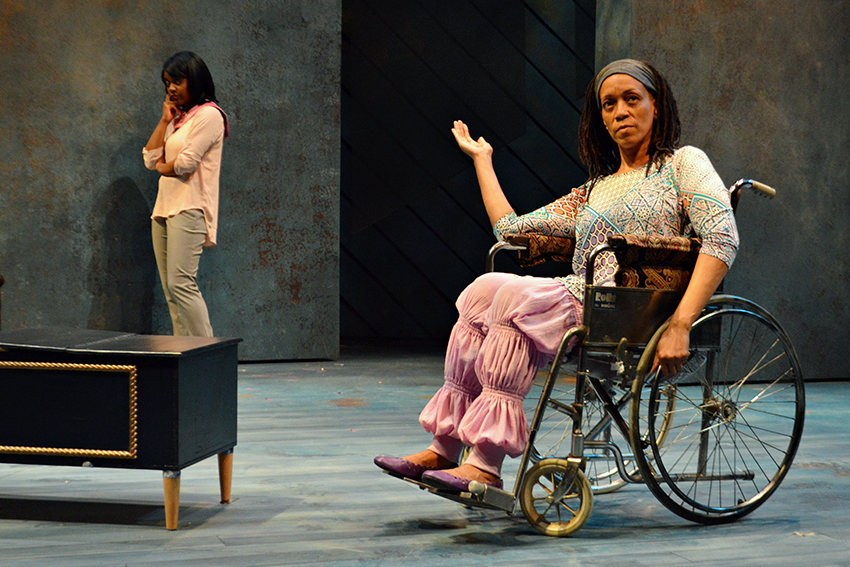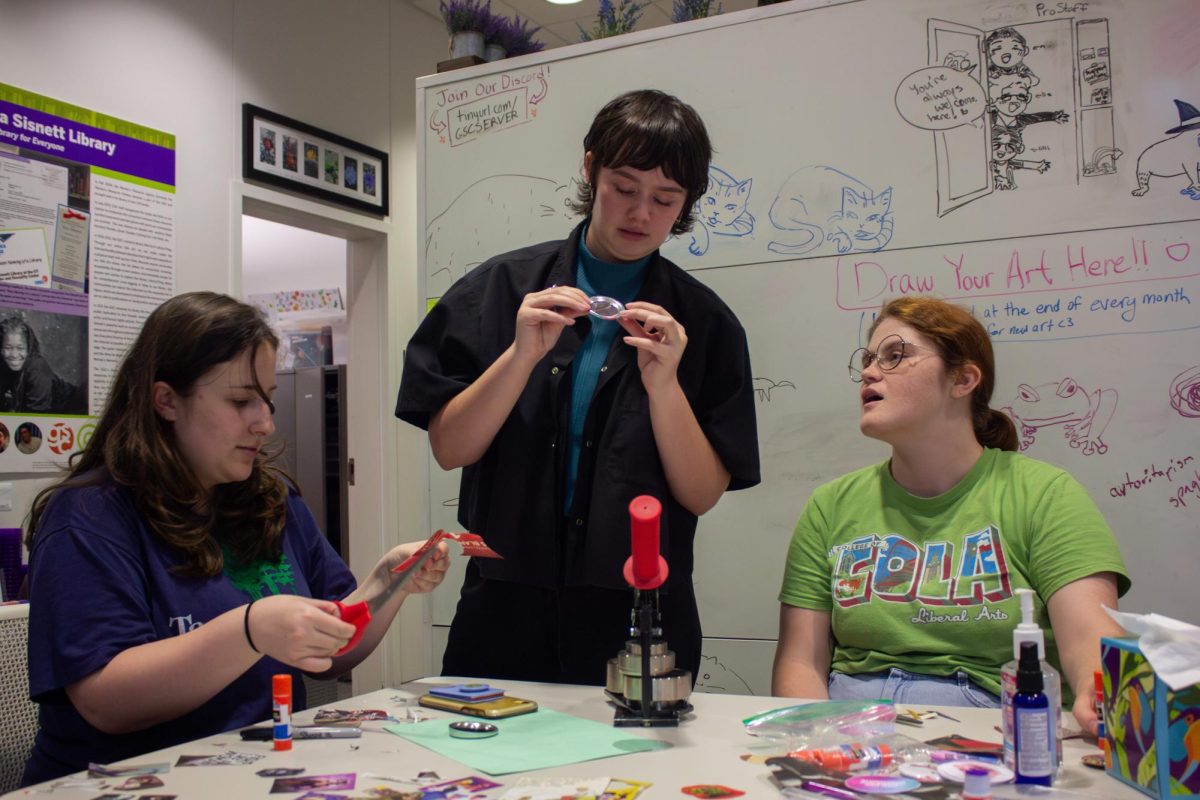Family relationships are already complicated enough, but adding magic and witchcraft to the mix makes everything all the more complicated.
UT’s Theatre and Dance Department’s newest play, “MotherWitch,” explores the drama that arises from such a combination, telling the story of three generations of black witches. In doing so, it challenges the notion that stories starring protagonists of color have to be tragic.
“MotherWitch” focuses on the relationships between three generations of magical women in a single family: Sherry, the grandmother; Barb, the mother and lawyer who quit practicing magic; and Darla, who is about to turn 21 and learn about her true heritage. The play opens at the Oscar G. Brockett Theatre on April 13, 19 and 21 at 7:30 p.m. and April 15 at 2:00 p.m.
Khali Sykes, the theater and dance freshman portraying Barb, said the three characters have a lot of turmoil within the home, due to generational drama and conflicting personalities.
“When you have three generations of women living in one household, it’s gonna wreak some havoc,” Sykes said. “It’s a lot of estrogen in one space and we all tend to be very strong-minded.”
According to Sykes, that strong-mindedness is precisely what fuels conflict between the characters.
“We all have our similarities and (that is) where we butt heads the most. But underneath all of that is this love that comes out in very odd ways,” Sykes said.
While the dramatic layers of relationships form the foundation of the play, elements incorporated from other cultures add more complexity to the plot. Travis Tate, the writer of the play and a writing MFA candidate, said the idea for the play started with his interest in Haitian voodoo and Wiccan cultures, and the idea to add the characters’ familial relationships came second. Tate incorporated a lot of cultural details not only into the script, but into the set as well.
“We picked a lot of things from African Yoruban culture (too),” Tate said. “Seashells, things like that, you’ll see on the stage and in the language of the play, and also we mix the altar with the Wiccan altar, which is more crystals.”
The members of the cast and crew treaded carefully around these topics. They have become integral cultural components of play, but Alice Stanley, a graduate student in the MFA directing program and the director of “MotherWitch,” said the cast and crew endeavored to accurately represent Haitian and Wiccan cultures.
Tate and Stanley also said they were eager to release a production that challenges the typical portrayal of black women in film and theatre.
“Representation is a huge thing that you get (in this play),” Stanley said. “It’s a story of three black women. It’s about celebration of their power (and) … it’s about overcoming oppression without directly (talking about) the oppression.”
Tate agreed, saying he wanted to create a space for a more mundane representation of people of color that does not include tragedy, while using magical elements to celebrate their power.
“It doesn’t have to be ‘Precious,’” Tate said. “Not that those stories aren’t valid and important and needed as well, because they are. But this story deals with kind of normal dynamics that we don’t get to see through a lens of people of color. We get more tragic, dramatic stories with people of color, particularly black people. And that’s not what this story is.”





















